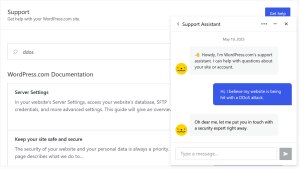The Hidden Tactics Cybercriminals Use in DDoS Attacks—and How You Can Outsmart Them Before It’s Too Late
Why do websites become targets?
Common reasons for being on the receiving end of a DDoS attack are:
- Ideological reasons: Some attacks are politically motivated and target government websites or institutions aligned with causes that the perpetrators don’t agree with.
- Hacktivism: Hacktivist groups have been known to use DDoS attacks to protest war, censorship, or foreign policy decisions.
- Extortion: Criminals may launch attacks to extort money in exchange for stopping the disruption.
- Cyberwarfare: Attacks also happen between countries to disrupt each other’s essential services during a conflict.
- Business competition: Competitors may try to knock rival businesses offline during a key sale or launch.
- Experimentation: Inexperienced hackers might carry out DDoS attacks “for fun” or to test their skills.
- Opportunity: Many attacks are automated and simply happen because a website is vulnerable. It’s random and can even happen to a personal website.
Potential consequences of being attacked
When your website becomes suddenly unavailable to visitors, it can have many negative effects:













